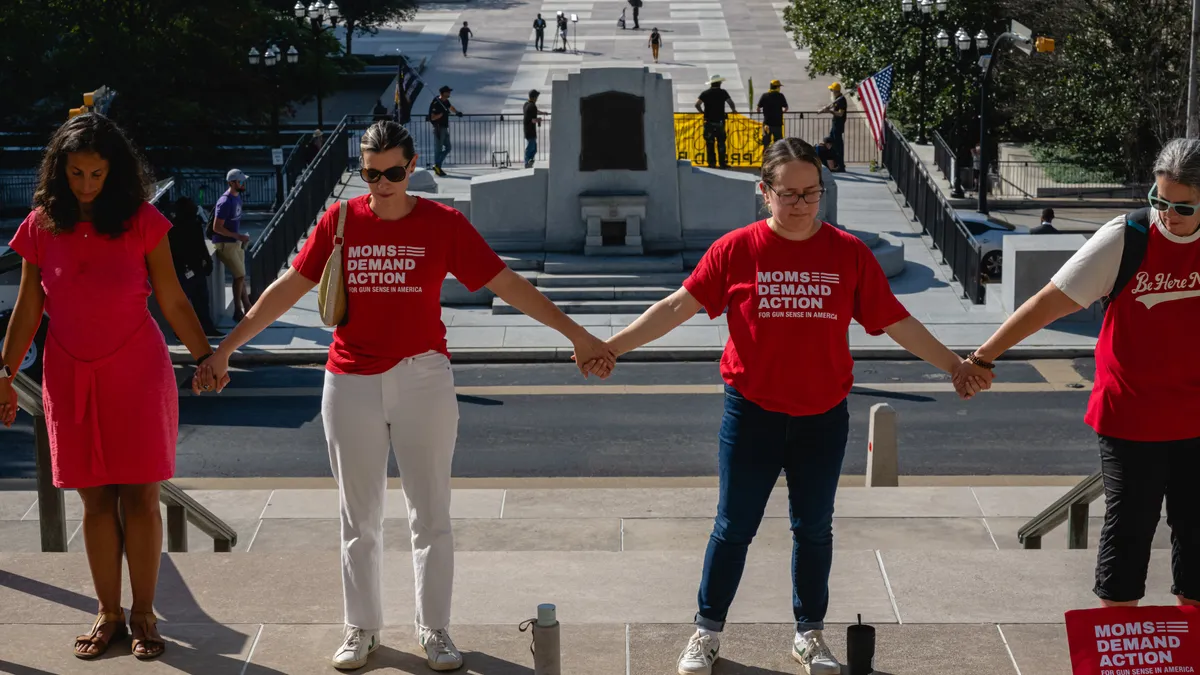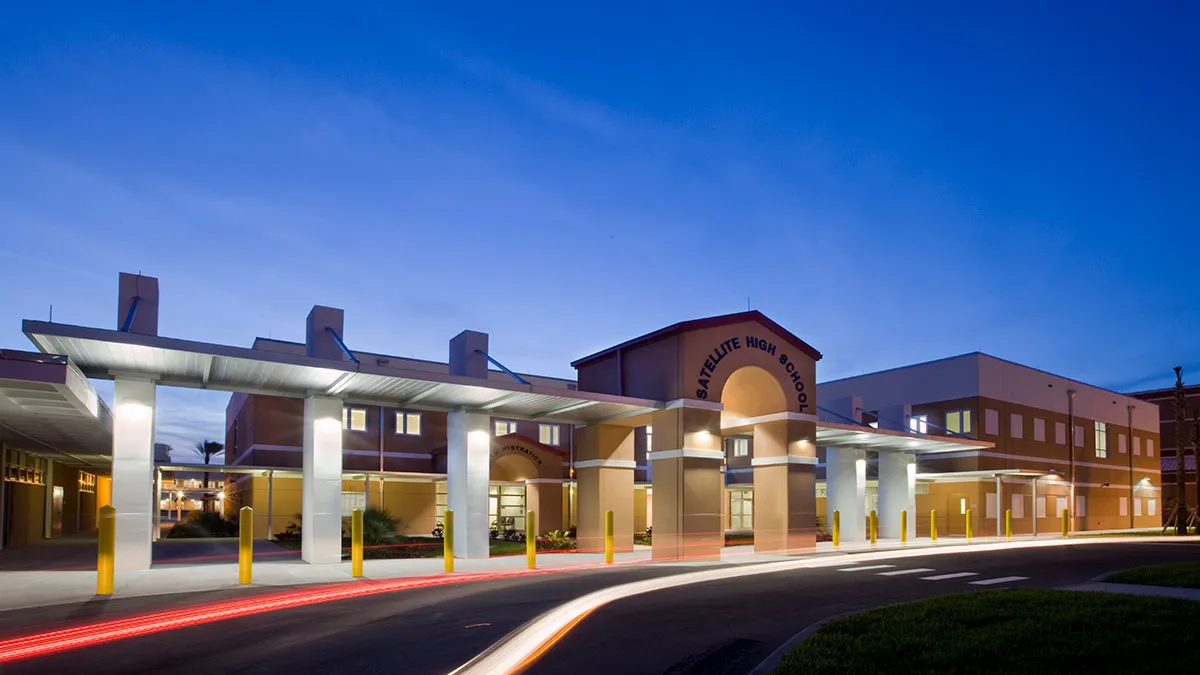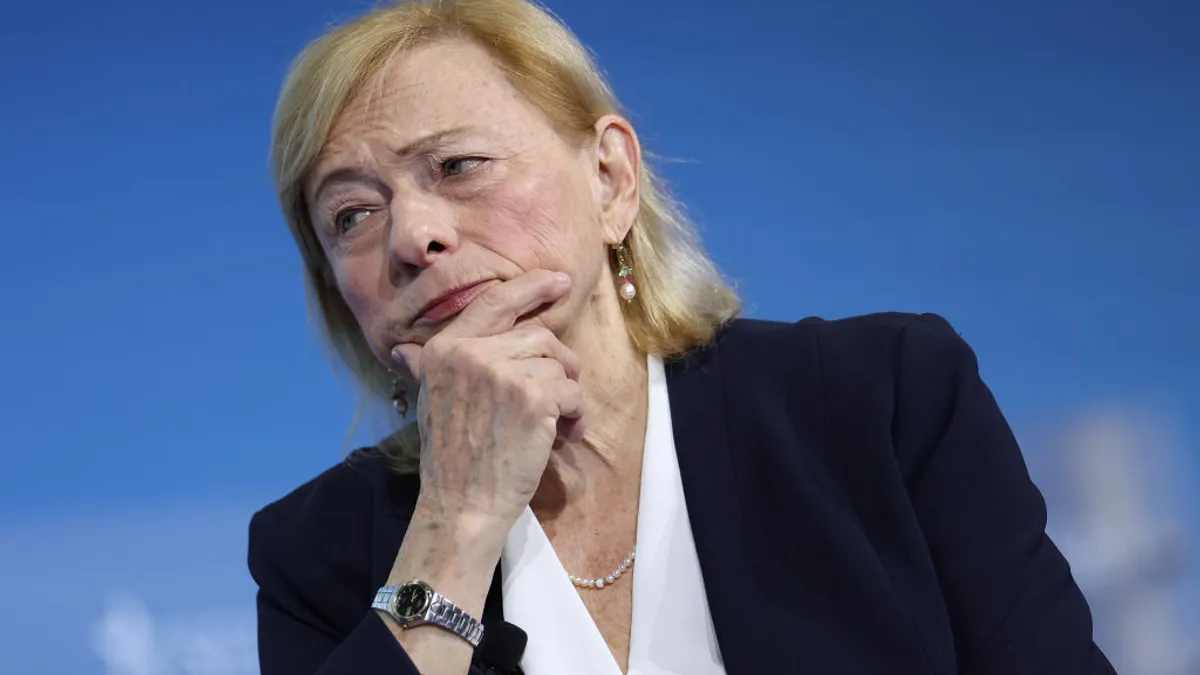Wednesday marked the somber first anniversary of the mass shooting that left three students and three staff members dead at the Covenant School in Nashville, Tennessee. A year later, activists continue to push for lawmakers' response, and policy change has been incremental.
"One year ago, our community was changed forever," said Carol Buckley Frazier, a volunteer for the Tennessee chapter of Moms Demand Action, a gun violence prevention advocacy organization. Buckley Frazier said the group continues to "demand change from Tennessee leaders to prevent future tragedies."
As with a number of other mass shootings, the incident spurred activism, controversy, and questions from the education community. Here's what's shifted — or stagnated — in the policy and school safety landscape since the Covenant shooting.
Policies passed
Less than a month after the school shooting, in April 2023, Tennessee Gov. Bill Lee signed an executive order to strengthen background checks for purchasing firearms.
Then in May, less than two months after the tragedy, the Republican governor signed a $230 million school safety law that hardened school buildings and required schools to establish threat assessment teams and annual safety plans. It also funded one full-time armed school resource officer for every public school and more than 100 state and local Homeland Security agents across all counties to coordinate school security.
The bill had been introduced prior to the shooting, but fast tracked and enhanced in the Covenant shooting's wake.
In just months after those funds became available, more than 300 additional school resource officers were hired and placed in schools, according to local reports.
Legislation stalled
However, other legislation has stalled in the state, including Lee's proposal that would have prevented those who are deemed a threat to themselves or others from accessing firearms. Republicans bucked that legislation, with the House Republican Caucus releasing a statement saying "any red flag law is a non-starter."
A slew of other state bills, many of which were introduced before the shooting but regained relevance after the tragedy, died with the end of the legislative session. Those included Republican plans that would have allowed school staff to carry concealed firearms on school grounds and that would have lowered to 18 the age for carrying handguns without clearing a background check.
Tennessee Democrats, meanwhile, pushed for restrictions on firearms such as red-flag laws that also stalled in a special "public safety" legislative session ordered by Lee. Ultimately, lawmakers ended the session without enacting any gun reform policies.
Questions raised post-tragedy
The Covenant shooting took place less than a year after the handling of the Uvalde mass shooting, which took the lives of 19 students and two teachers, ignited nationwide criticism over law enforcement response and school safety preparedness.
"Knowing the facts of what happened during each school shooting response is critical for other schools and police to know how to respond better in the future," said David Riedman, school shooting and security expert, in a recent data analysis and report published on his website. Riedman is founder of the K-12 School Shooting Database, which tracks school shootings.
"How can schools across the country best protect their students when we don’t know what went right or wrong during prior attacks?" he asked in his analysis.
The Covenant shooting also raised questions about police officer response to school shootings.
The day after the Covenant School shooting, Nashville Police Department released bodycam footage of officers' response to the tragedy. "It’s rare to release this footage so quickly showing the killing of a mass shooter," said Riedman, adding that it was "abnormal" that the video didn't show timestamps as is standard with police body cameras.
"The public needs to know what happened during the 14 minutes between the first 911 call and the shooter being killed, because this lack of transparency raises questions," said Riedman.
Nashville Police Chief John Drake told news outlets after the tragedy that police "didn’t hesitate at all" in their response to the mass shooter.
"They responded, immediately went inside, knew the danger that was going on," said Drake. "Shots were being fired at the police cars. That did not deter them. They went anyway inside."
The police department, however, has not yet released an after-action report of their response to the shooting, according to local news outlets.
Activism continues
A year later, activism sparked by the Covenant shooting continues.
“The tragic shooting at the Covenant School last year will stay with the loved ones of the victims — and the entire Nashville community — for the rest of their lives,” said Angela Ferrell-Zabala, executive director of Moms Demand Action, in a statement.
On Wednesday, the organization and thousands of other gun safety advocates gathered at the Tennessee state capitol, linking arms in a human chain, to mark the tragedy's anniversary.
In the meantime, school shootings continue to climb year over year. Last year, the total number of school shootings outpaced those from 2022 to set another record high. However, the active shooter incidents and mass shootings made up a small portion of the overall gun activity on K-12 campuses.
In 2023, there were five school shootings that each claimed four or more victims. The Covenant School mass shooting remained the deadliest.























